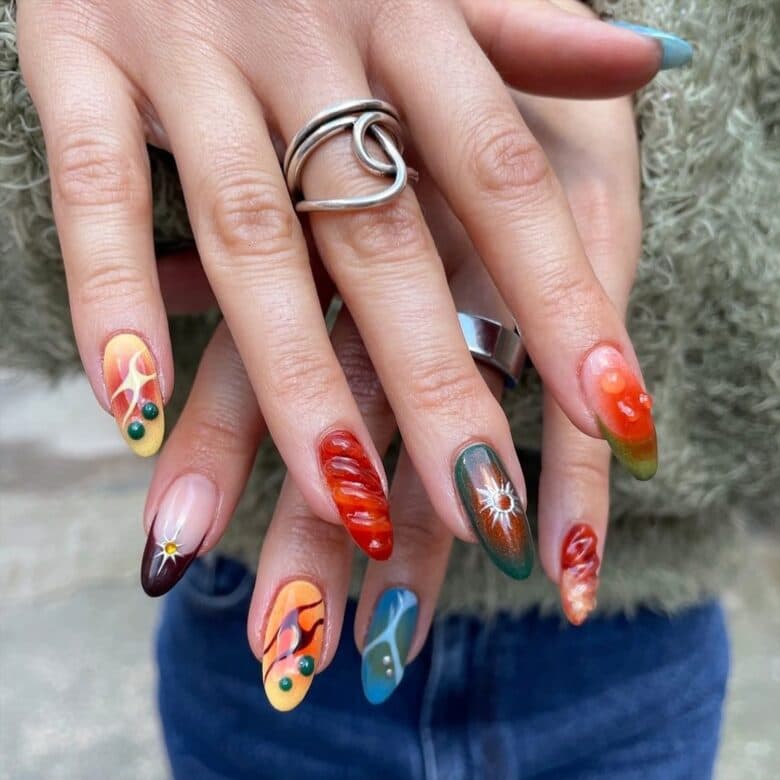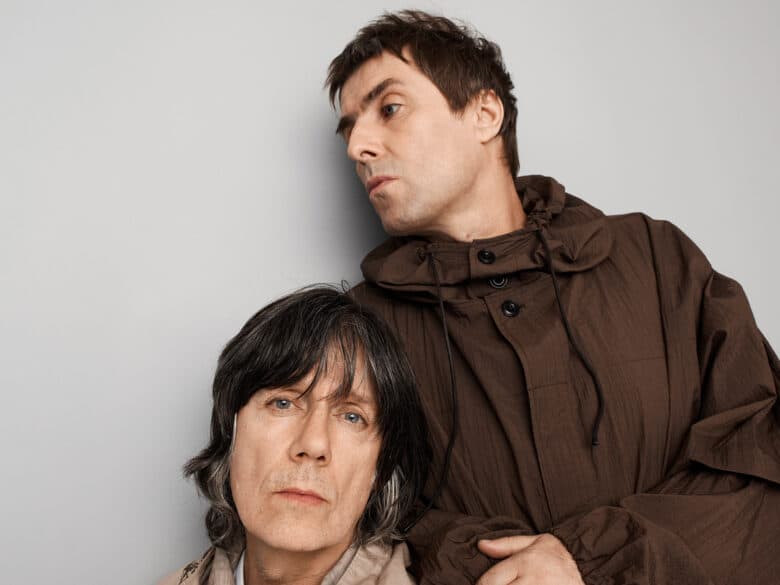Jordan Stephens
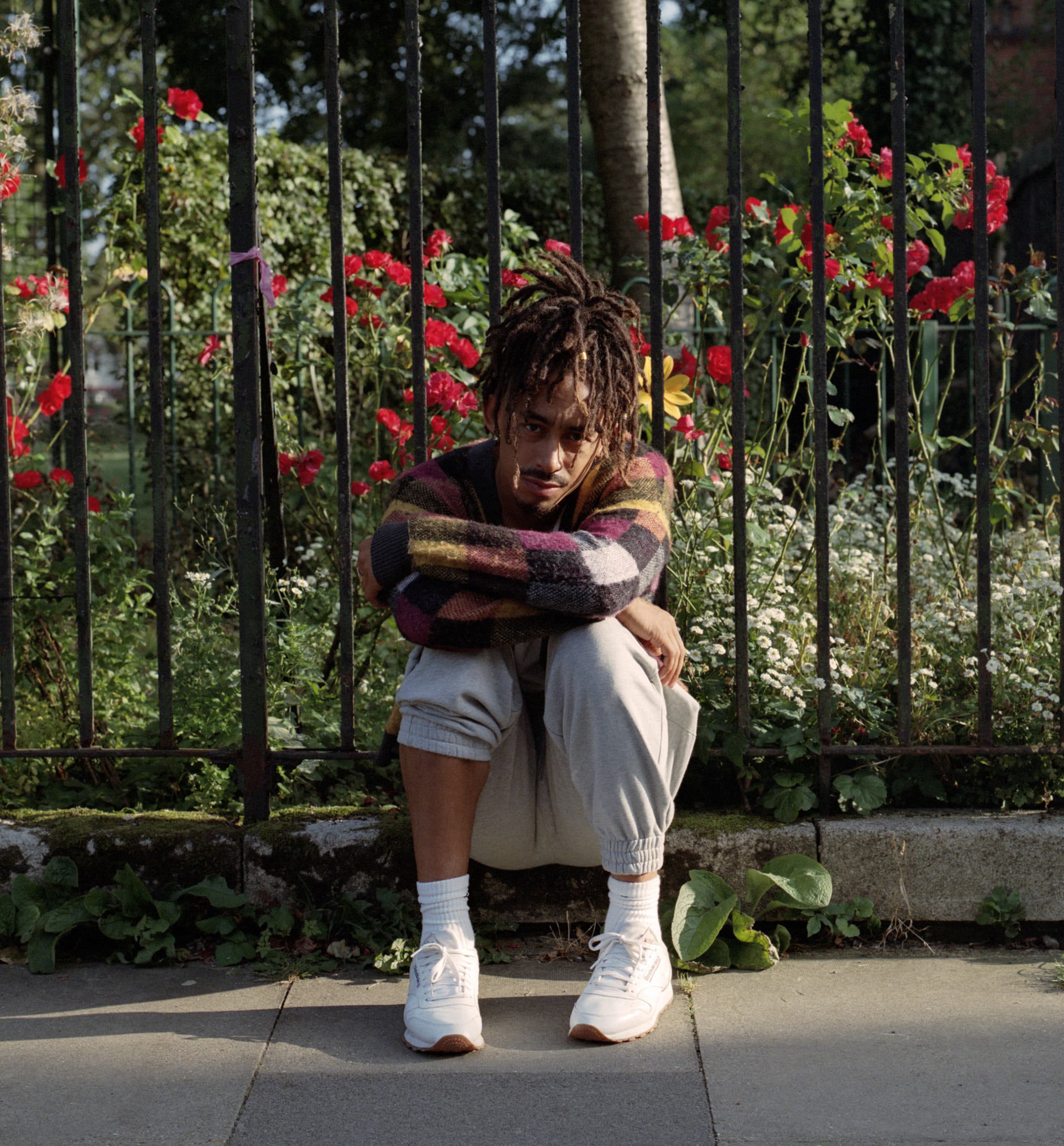
Outspoken, multitalented and authentic in a world of half-truths, Jordan Stephens is a renaissance man for our times. Initially breaking out as part of duo Rizzle Kicks, he’s been going his own way throughout the 2020s and latter half of the 2010s — combining work as a presenter, actor and writer with public advocacy on the topics of masculinity and mental health, often pulling from his own experiences to further his message.
And like it began, so it continues, with Stephens returning to music and establishing himself as a solo singer-songwriter through well-received EPs and singles exploring his state of mind with unflinching honest. Among his most recent work is the candid “Wicked” and thought-provoking “Star” — two singles that speak to some of the most intimate facets of the human condition today, without losing Stephens’ trademark sense of humour.
Speaking about “Star”, in typically tongue-in-cheek fashion, Stephens explains that; “‘Star’ is a song about our desire to be seen. Our need to find love in whatever space we can, even if that’s infamy. It’s about our desire to fight external perceptions we can’t control,” before adding, “It’s just a little trip. Depends how you feel.”
To celebrate the release of “Star” HUNGER dialled the multifaceted creative up to talk magic, masculinity and more in a wide-reaching conversation.
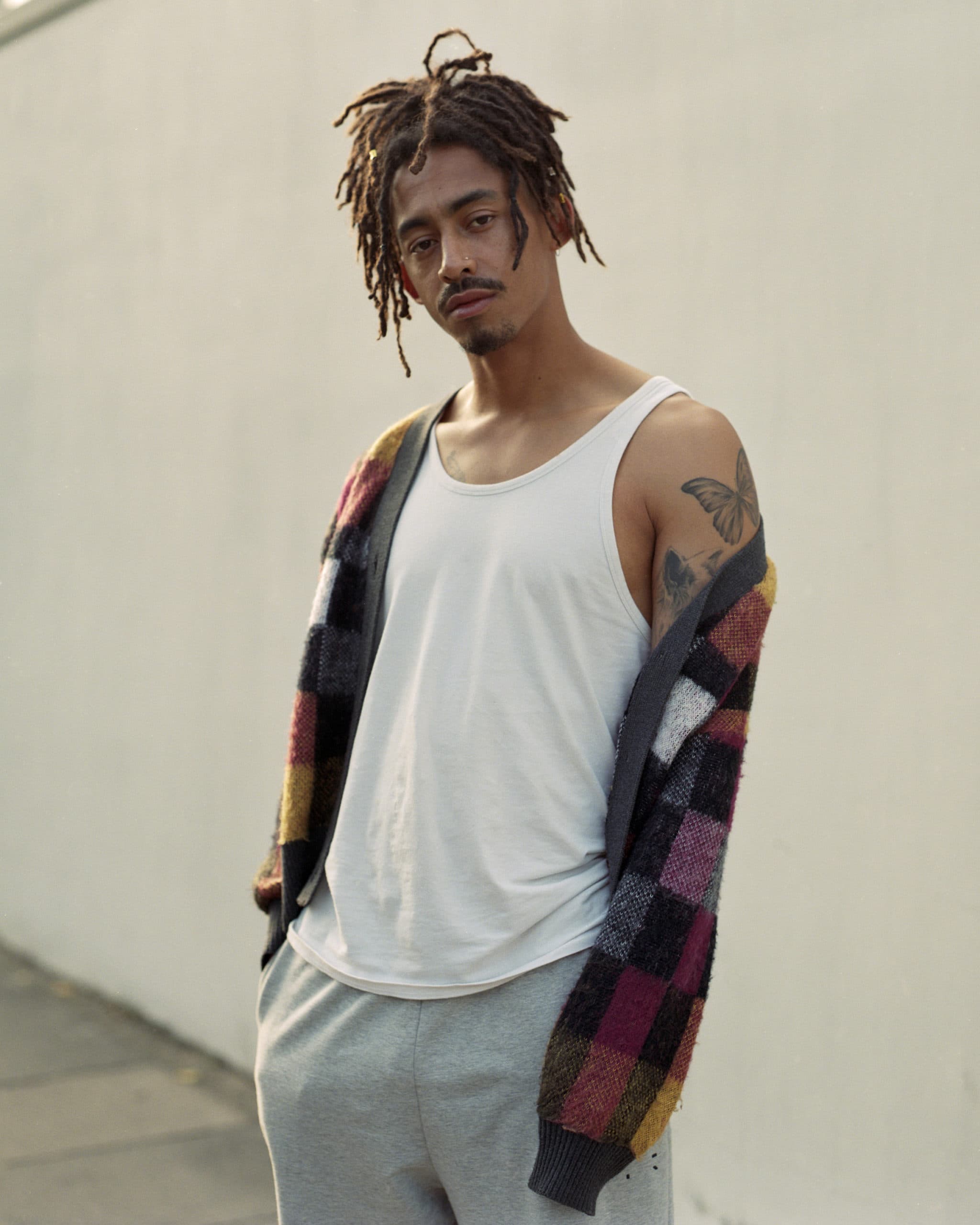
To begin, let’s discuss your single “Wicked” – I know it’s not your most recent track, but it’s been on repeat in the HUNGER office since it dropped. For those who haven’t listened yet, what are some of the themes of that song?
At the time I was wanting to create a song to combat the perpetual pressures that the world pushes onto us. These ideas saying that all of our value is external, all of this shit of the consumerist society that we’re in. It’s all about making us feel inadequate, like; “You’ll be better if you have this jumper or you’ll be better if you have this watch, or get this car or go on this holiday.” I just wanted to make a song that’s like; “No, fuck all of that. You are just good anyway, these things are options.” I don’t think that message is shown as much and also I want people to realise that there is power in numbers. The more people who understand their own value, the less power that overarching demonic system will have over things. I understand how the world works but I don’t like the current state of capitalism that we’re in. I feel as though it’s quite inhuman. Even if I’m totally interacting with the system by releasing music, I’m at least trying to put music out there that can counteract some of the emotions that come with being part of that.
Definitely, I think that culture can play quite an important role in changing the status quo: it’s often artists or writers who are employing their imagination to mould a different future. Why is it important for your work to have a message?
When you have some kind of influence, it’s important to be useful. Also, I genuinely believe in trying to live authentically. That’s the dream of all creative people, all people, to try and communicate truth of some kind. One thing I can say about my writing is that it genuinely is communicating whatever I’m feeling or whatever is going on in my head at that time. And I’ve been thinking quite existentially, recently anyway. It’s good to provide people with an opportunity to gain a new perspective. It’s like magic, isn’t it? There’s an essay by Alan Moore where he talks about Shamanism and how the performing arts, communication, talking, they’re all spells. We still say “spelling”, we still say “curse words”. It’s changing someone’s conscious state, it’s a big responsibility. There’s no pressure to create a revolution, but casting a decent spell – why not? Otherwise it’s a waste of energy.
You said you’ve been thinking a bit existentially lately. Why do you think that is?
Just maybe the people I’m around and in response to the world, it’s a bit nuts at the moment if I’m honest with you. I’m a total hippie, I absolutely love the earth, I very much believe in magic. I’ve experienced magic, what we consider to be magic, which sounds silly, but it’s very real – I’ve had experiences with plants and ceremonies that would be unexplainable [otherwise]. I struggle even saying that shit because it’s so easy to be dismissed. I believe that humans have way more power inside them than we realise. It seems to be that, for some reason, the system around us wants us to lose connection with ourselves.
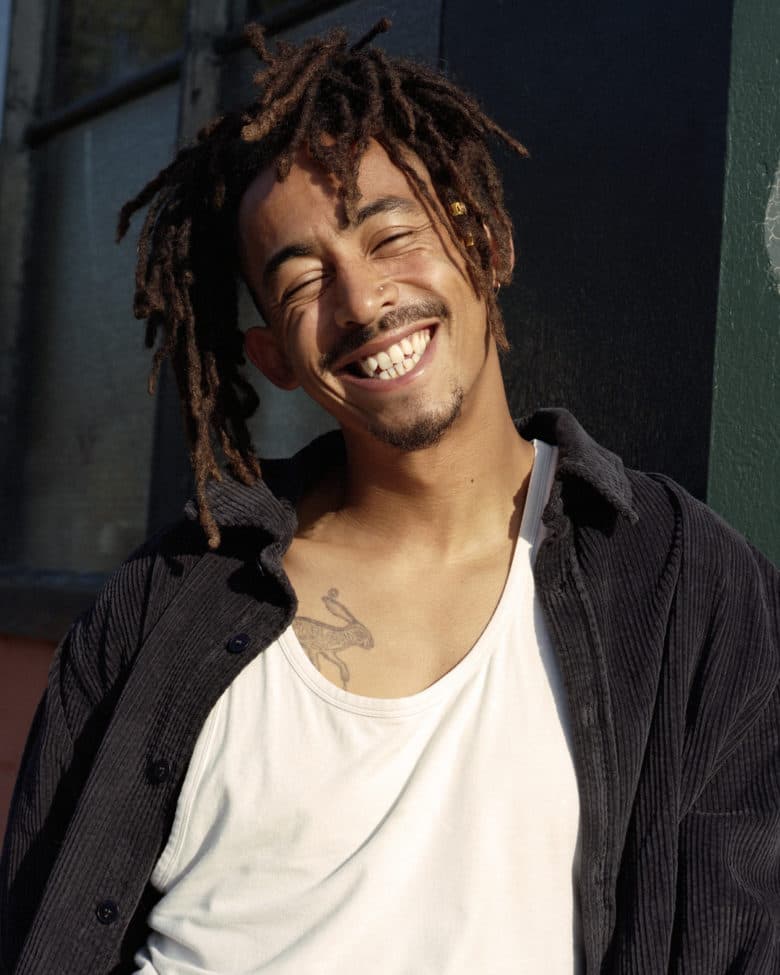
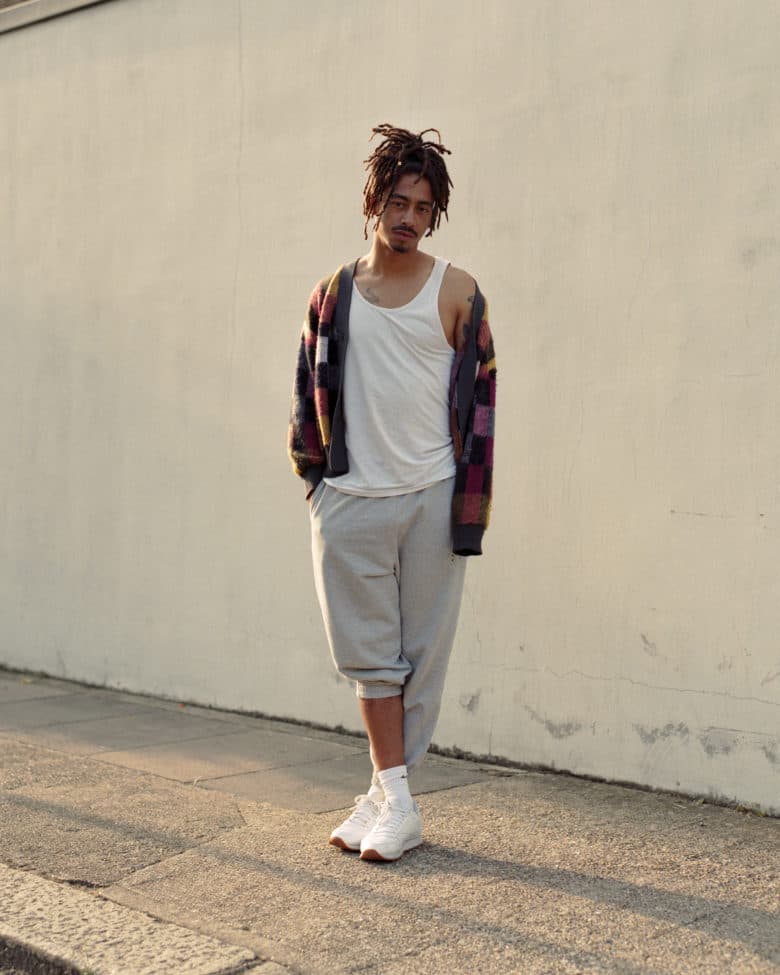
Earlier you spoke about spells and the power of words. Is that why you’re so interested in poetry and writing?
I just kind of express myself however I can, whenever I can. Writing is something I’m getting more and more in love with. Not necessarily writing more, but I’m enjoying it more. I just grew up with it, my gran would sit down with me and we’d read Chicken Soup for the Soul and Michael Rosen. I’d read Benjamin Zephaniah, my mum would get me a bunch of those types of books. Poetry was just a massive part of my childhood.
You do a lot of stuff, to put it simply. Why do you prefer working across different mediums?
Sometimes it’s “grass is greener”, innit. Sometimes I think, “Oh my god, I need to shut the fuck up and focus on one thing.” But when I speak to somebody who’s just focusing on one thing they’ll be like, “Oh, I wish I could do multiple things.” My brain is scatty. I have like a hundred thoughts at once. I’m always I’m very curious and I’ll try anything.
Speaking of your work outside of music, it was great to see you in Feel Good earlier this year. What was it like to be a part of such a beloved show?
I’ve known Mae [Martin] for a while and I think they’re really funny. I was over the moon to get that email saying, they wanted to see me for that part. And, of course, filming it was a laugh because everyone was wicked, everyone was hilarious. With Charlotte [Ritchie], whose boyfriend I was briefly playing, I absolutely love Charlotte. We’re really close now. That was a big thing for me, it was such a good show: fucking funny and quite deep in the second season,
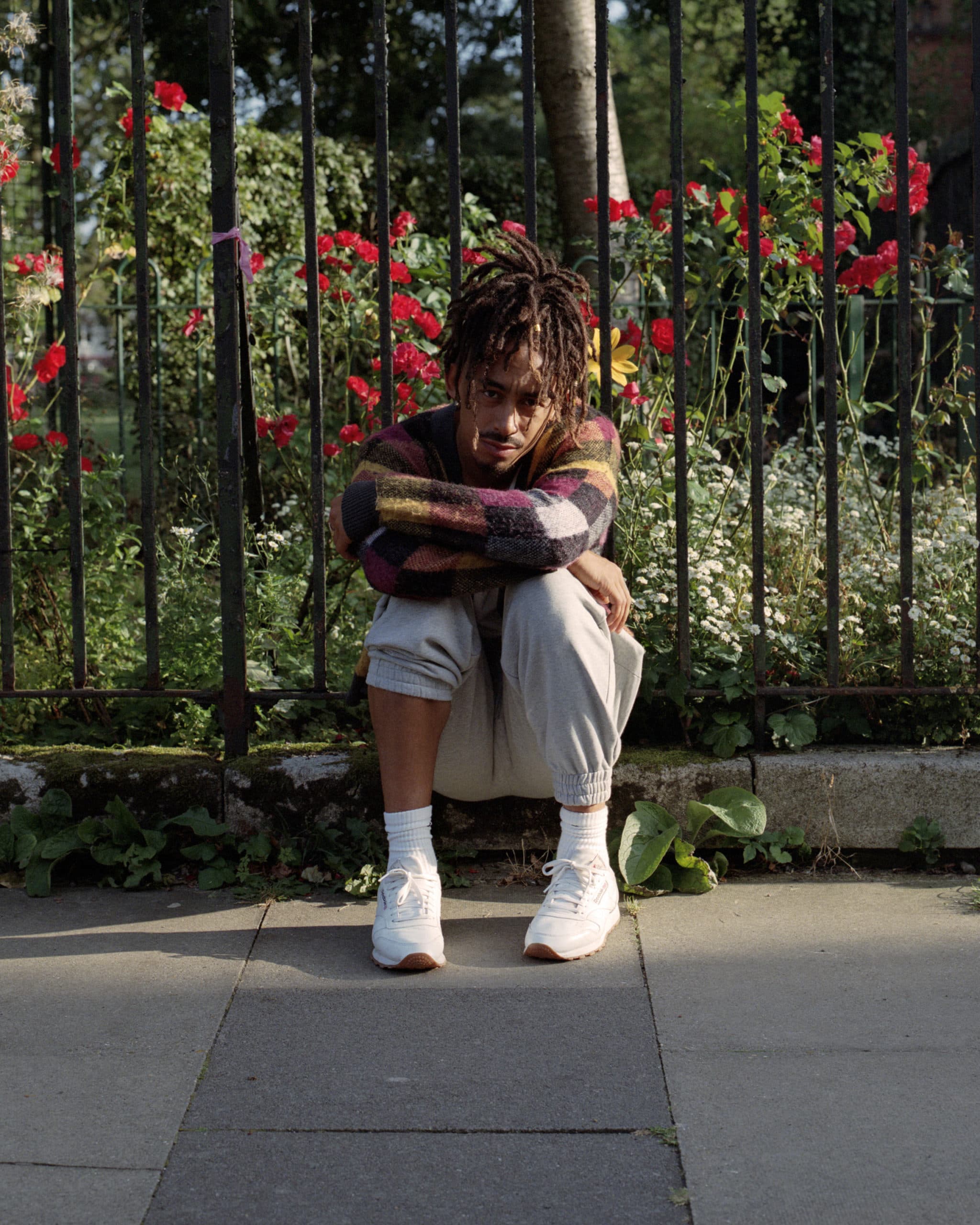
One of the issues you’ve really explored publicly has been the nuances of masculinity. Why is that an important conversation to be having?
I think the male experience should always be interrogated. My opinions change constantly with the conversation on masculinity but I do know that there needs to be more conversations within the male community about how we can better protect ourselves, look after ourselves and love ourselves. I think that’s important, I believe in that because I am a man and I’ve experienced things and seen my friends go through things. I really believe that the only way to keep pushing things along is to be honest.
And why is it important to engage with these conversations from a more empathetic viewpoint rather than a reductive viewpoint?
I initially got into the conversation because I wanted to be clear that there are certain glamourised behavioural tendencies within men that I thought were damaging, that I thought would continue to be damaging if they were upheld by men and women. Even since I’ve had that conversation, in the last five or six years, I’ve seen a lot of examples of men being empathetic, soft, beautifully paternal and accountable. I wonder if I’m more drawn to these incredible stories about men who have been, let’s say, “divinely masculine”, so as to remember that that [positive] energy does exist.
Mental health in the music industry is a big issue that you’re advocating for. How did you first get involved?
I got involved in mental health just because I was going through some shit. And I wrote about that. And then through serendipity, a song that I wrote became a mental health campaign. There’s nothing much deeper that the fact that I was in the industry, had other stuff going on my life which were hard to deal with, I was in this position of influence and I communicated. The rest is history.
Check out the visual for Jordan’s latest track “Star”, below.
